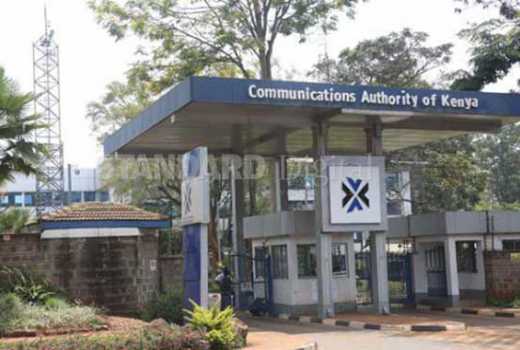×
The Standard e-Paper
Kenya’s Boldest Voice

NAIROBI, KENYA: As Kenya waits for the publication of the controversial report on market dominance by the Communications Authority of Kenya (CAK), latest data from the Telecoms regulator shows that rivals can eat into Safaricom’s market share.
The total mobile subscriptions recorded by Telkom Kenya jumped by 18.5 per cent to stand at 3.4 million from 2.8 million reported in the previous period, according to the first quarter report covering July and September 2017.